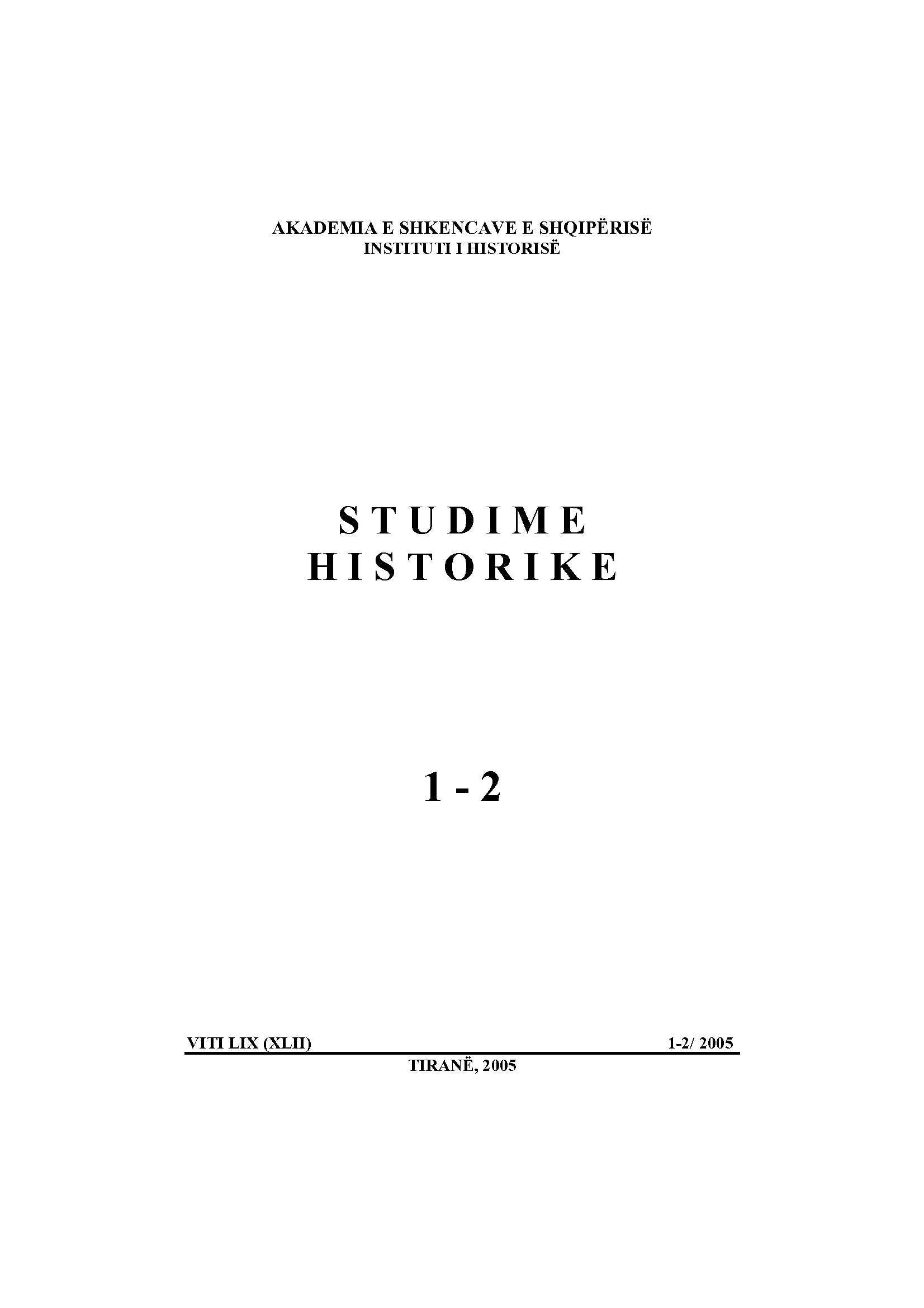Thelbi i ideve dhe i praktikave kantoniste – copëtimi i plotë i shtetit të ri shqiptar (1913-1915)
The Essence of the Cantonal Ideas and Practices – The Full Partition of the New Albanian State (1913-1915)
Author(s): Gazmend ShpuzaSubject(s): History
Published by: Qendra e Studimeve Albanologjike
Keywords: the new Albanian state after the Balkan wars; First World War; cantonal theses in the new Albanian state; Albania; Albanian History;
Summary/Abstract: In the article it is treated the manifestation of the cantonal theses in the new Albanian state after the Balkan wars, and after the Conference of London, in which were halved the lands of Albania, on the eve and the beginning of the First World War, when was being prepared the secret Treaty of London during the agreements of Esad with Belgrade. The moment was appropriate for the enlivement of these points of view. The author stresses the predomination of the anti-cantonal stand of the Renaissance men. The withdrawal of some of the true, idealists, partisans of this thesis, as Ismail Qemali, in front of the reality, the consequences observed immediately after the splitting anti-Albanian activities, from the cantonal points of view, remains extremely expressive nowadays, yet. On the other side, even the personality of the consequent bearers of this thesis as well as of the activists of its implementation as Esad Pasha, Preng Pasha, Kristaq Zografi, Spiro Spiromilo is an indicator of the dangerousness of the propaganda of the cantonal ideas, and, especially, of the attempts for their implementation. The foreign support of that time for the partisans of this thesis from Belgrade, Athens, Cetina, Petersburg, Rome and Paris testifies, if we take in account the stands of these states towards the independence of Albania, that we had to do with a request, with a clear anti-Albanian back-area. That is proved also by the fact that the rush of the cantonal points of view coincided just with the eve of the signature of the secret Treaty of London, when it was planned the further, almost entire, partition of the Albanian state. In these circumstances, the comparison with Swiss remains quite inappropriate. Such theses were refused, turned down by patriotic and far-sighted journalists. The cantonizing practices, which opposed to the national consciousness and the achievements of the Albanian National Movement and the National Albanian state since its first steps and until late, as have been “The Council of the Elders” of Central Albania, “The Autonomy of North Epirus”, “The Autonomy of Himara”, “the Republic of Mirdita” etc., cannot serve, as it is pretended to be proved today, as a positive and optimistic experience. The outdated and surpassed political organisms cannot be today a basis or a model for the democratization of the country.
Journal: Studime Historike
- Issue Year: 2005
- Issue No: 01-02
- Page Range: 043-056
- Page Count: 14
- Language: Albanian
- Content File-PDF

